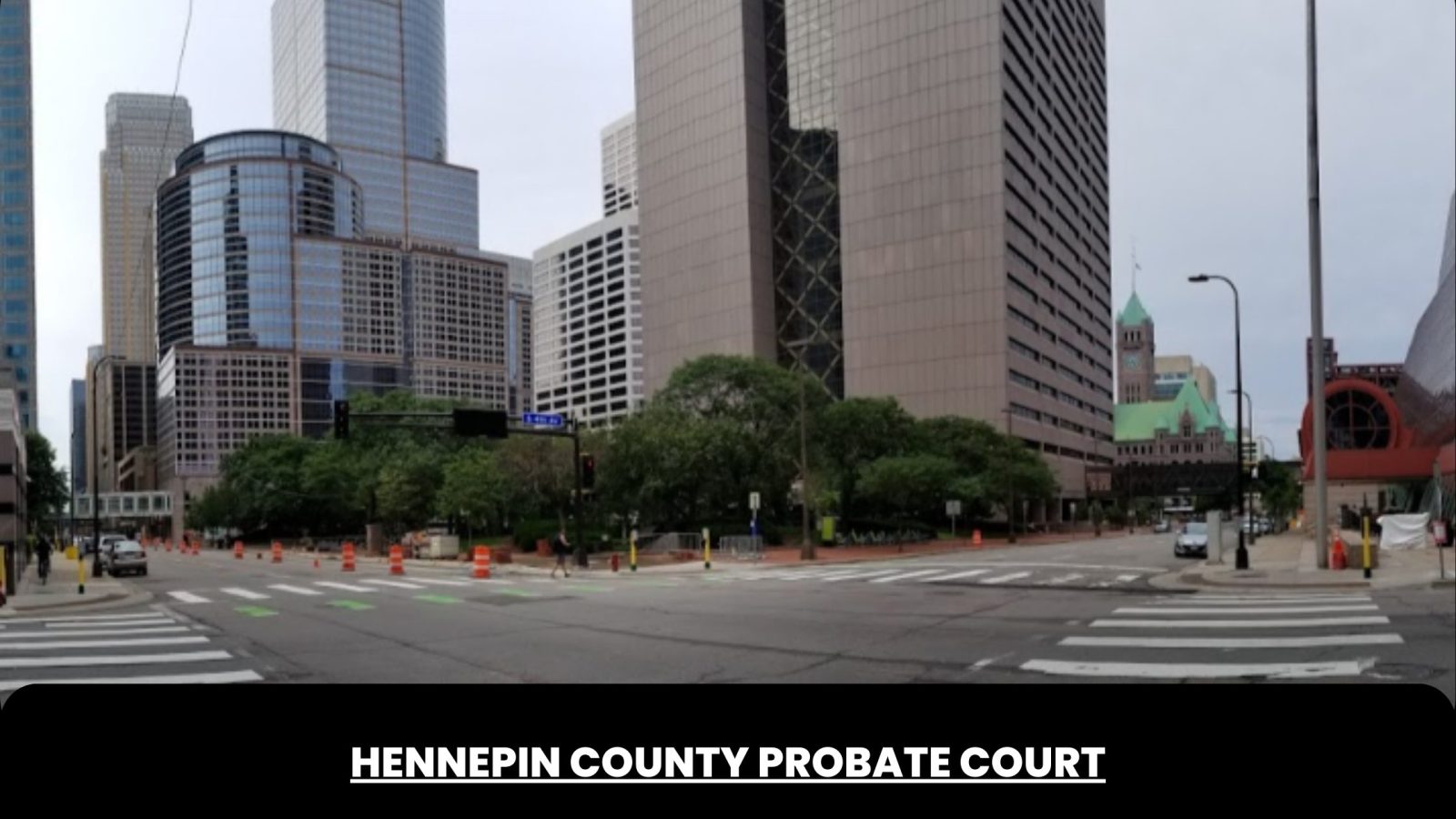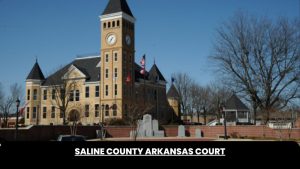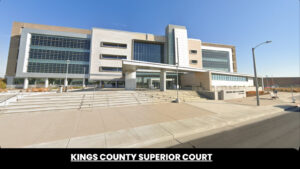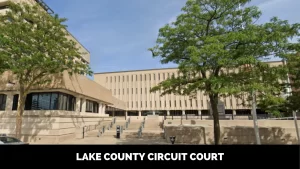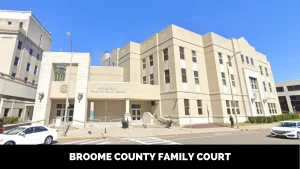Hennepin County Probate Court
Probate matters can be complex and overwhelming, especially during difficult times. When dealing with the distribution of assets and settling the affairs of a deceased individual in Hennepin County, Minnesota, it is important to understand the role of the Hennepin County Probate Court. This article will guide you through the probate process, explain the court’s functions, and provide helpful insights to navigate this legal procedure.
Introduction to Hennepin County Probate Court
The Hennepin County Probate Court is a specialized court that handles matters related to the distribution of assets and the settlement of estates after someone passes away. This court ensures that the deceased person’s wishes, as outlined in their will, are respected and that their assets are distributed according to the law.
Understanding the Probate Process
What is Probate?
Probate is the legal process that takes place after someone’s death to administer their estate. It involves proving the validity of the deceased person’s will, identifying their assets and debts, paying taxes and outstanding debts, and distributing the remaining assets to the beneficiaries.
Role of Hennepin County Probate Court
The Hennepin County Probate Court plays a crucial role in overseeing the probate process. It ensures that all legal requirements are met, provides guidance to personal representatives, resolves any disputes or challenges, and supervises the distribution of assets.
Initiating the Probate Process
Filing the Petition
To begin the probate process in Hennepin County, a petition must be filed with the probate court. The petition includes necessary information such as the deceased person’s name, date of death, and the appointed personal representative.
Appointment of Personal Representative
The probate court appoints a personal representative who is responsible for managing the estate. The personal representative acts as the liaison between the court, creditors, and beneficiaries, ensuring that the deceased person’s wishes are carried out.
Inventory and Valuation of Assets
Identifying Assets
Once appointed, the personal representative must identify and locate all the assets owned by the deceased person. This includes bank accounts, real estate, investments, vehicles, and personal belongings. A thorough inventory of assets is crucial for a fair distribution.
Obtaining Appraisals
In some cases, it may be necessary to obtain appraisals for certain assets to determine their value accurately. Appraisals can help in ensuring that the distribution of assets is done fairly and in accordance with the law.
Handling Debts and Taxes
Notifying Creditors
The personal representative is responsible for notifying creditors of the probate process. This gives creditors an opportunity to file claims against the estate if there are outstanding debts. It is essential to provide creditors with the required information within the specified timeframe.
Paying Taxes
The personal representative also ensures that all applicable taxes, such as income tax and estate tax, are paid from the estate’s assets. This includes filing tax returns and settling any tax liabilities owed by the deceased person.
Distribution of Assets
Determining Heirs and Beneficiaries
Before the assets can be distributed, the probate court verifies the validity of the deceased person’s will, if available. If there is no will, the court follows the laws of intestate succession to determine the rightful heirs and beneficiaries of the estate.
Asset Distribution Process
Once the court approves the distribution plan, the personal representative distributes the assets to the beneficiaries as outlined in the will or determined by the court. This may involve transferring ownership, selling assets, or dividing them among multiple beneficiaries.
Challenges and Disputes in Probate
Will Contests
Sometimes, disputes may arise concerning the validity of the will or its terms. Interested parties can contest a will if they believe it was executed under undue influence, fraud, or if the deceased person lacked testamentary capacity. The probate court addresses such challenges to ensure a fair resolution.
Disagreements among Heirs
In some cases, disagreements may occur among heirs regarding the distribution of assets. The probate court acts as a neutral party and helps resolve these disputes through mediation, negotiation, or, if necessary, by making a decision based on the applicable laws.
Timeframe and Costs of Probate
Duration of the Probate Process
The duration of the probate process can vary depending on the complexity of the estate, the presence of challenges or disputes, and the efficiency of the probate court. Generally, it takes several months to a year or more to complete the process.
Expenses Involved
Probate expenses typically include court fees, attorney fees, appraisal costs, and other administrative expenses. These costs are paid from the estate’s assets before the distribution to beneficiaries. It is essential to consider these expenses when estimating the value of the estate.
Alternatives to Probate
Living Trusts
Creating a living trust can be an effective way to avoid probate. By transferring assets into a trust during one’s lifetime, the assets can be managed and distributed without going through the probate process. This can save time, expenses, and provide more privacy.
Joint Ownership
Another alternative to probate is joint ownership of assets. By adding a joint owner with rights of survivorship to certain assets, such as bank accounts or real estate, the ownership automatically transfers to the surviving joint owner upon the other owner’s death.
Hiring an Attorney for Probate
Benefits of Legal Representation
Navigating the probate process can be complex, and legal guidance is highly recommended. Hiring an experienced probate attorney can provide peace of mind, ensure compliance with legal requirements, and help avoid costly mistakes.
Choosing the Right Probate Attorney
When choosing a probate attorney, consider their expertise, experience, and reputation. Look for an attorney who specializes in probate law, has a good track record, and communicates effectively to understand your specific needs and provide the best possible representation.
Searching Hennepin County Probate Cases
Searching for probate cases in Hennepin County is an important step in obtaining relevant court records. The following resources can assist you in your search:
- Hennepin County Probate Court Website: The official website of the Hennepin County Probate Court provides online access to probate case information. Utilize the search feature on the website to find relevant cases.
- Online Databases: There are various online databases, both governmental and private, that offer access to Hennepin County probate records. These databases allow you to search for specific cases, view case details, and even download relevant documents.
- County Clerk’s Office: Visiting the Hennepin County Clerk’s Office in person provides an opportunity to access probate records directly. The clerk’s office can guide you through the process of searching for and obtaining court documents.
Accessing Hennepin County Court Records
Once you have identified the probate cases of interest, accessing the court records becomes crucial. The following steps can help you access Hennepin County probate court records:
- Case Number and Information: Note down the case number and relevant information about the probate case, such as the names of parties involved and the filing date. This information will be helpful when requesting specific court records.
- Requesting Court Records: Submit a request for the desired court records to the Hennepin County Probate Court or the Clerk’s Office. Specify the case number and the documents you require. Depending on the court’s policies, you may request copies of the records or be allowed to view them in person.
- Fees and Processing Time: Be aware that there may be fees associated with obtaining court records. The court will inform you about the applicable fees and the expected processing time for your request.
Role of Hennepin County Probate Court
The Hennepin County Probate Court plays a crucial role in maintaining and safeguarding probate records. As the official repository of these documents, the court ensures their accuracy, accessibility, and preservation. The court records include various types of documents related to probate cases, such as wills, petitions, inventories, and orders issued by the court.
Hennepin County Probate Court Address and Contact Information
If you need to contact the Hennepin County Probate Court, below are the relevant details:
- Hennepin County Probate Court Address:300 South 6th Street, C-400. Minneapolis, MN 55487
- Hennepin County Probate Court Phone Number: 612-348-3000
It is advisable to contact the court directly for the most up-to-date contact information and to verify their operating hours.
Hennepin County Probate Court Forms
The Hennepin County Probate Court provides various forms necessary for probate proceedings. These forms can be obtained from the court’s website or in person at the court’s location. Some commonly used probate court forms include:
- [Form Name 1]
- [Form Name 2]
- [Form Name 3]
Ensure that you have the correct and updated versions of the forms before submitting them to the court.
Hennepin County Criminal Court
While this article primarily focuses on probate matters, it is worth noting that Hennepin County also has a separate criminal court system. The Hennepin County Criminal Court handles cases related to criminal offenses, prosecutions, and related legal proceedings. If you require information or access to criminal court records, it is necessary to contact the Hennepin County Criminal Court directly.
Hennepin County Clerk of Court
The Hennepin County Clerk of Court is responsible for administrative tasks and record-keeping within the county’s court system. The Clerk’s Office maintains court records, including probate records, and assists the public in accessing these records. If you have any inquiries or need guidance regarding court records, contacting the Hennepin County Clerk of Court can provide valuable assistance.
Conclusion
The Hennepin County Probate Court plays a vital role in overseeing the probate process and ensuring the fair distribution of assets. Understanding the steps involved, from filing the petition to the final asset distribution, can help navigate this complex legal procedure. Consider alternatives to probate, seek legal representation, and rely on the guidance of professionals to ensure a smooth and efficient probate process.
FAQs
Q1: Is probate necessary for all estates in Hennepin County?
A: Probate is required for most estates unless the assets are structured to avoid probate, such as through trusts or joint ownership.
Q2: Can I handle probate without hiring an attorney?
A: While it is possible to handle probate without an attorney, it is generally recommended to seek legal guidance to ensure compliance with the law and streamline the process.
Q3: How long does the probate process typically take in Hennepin County?
A: The duration of probate can vary, but it often takes several months to a year or more, depending on the complexity of the estate and any challenges or disputes.
Q4: What happens if there is no valid will?
A: In the absence of a valid will, the probate court follows the laws of intestate succession to determine how the assets will be distributed among the heirs.
Q5: What are the advantages of creating a living trust instead of going through probate?
A: Creating a living trust can help avoid probate, providing more privacy, faster distribution of assets, and potential cost savings.

